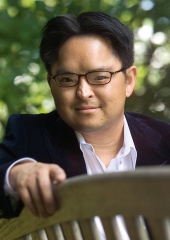
Reprinted from the Cornell Chronicle, March 13, 2017.
By Susan Kelley
Asian-Americans are often seen as “model” minorities whose success is often attributed to a lack of barriers, such as racism and discrimination, that might prevent upward mobility.
But a new Cornell study – one of the first to link daily racial slights and insults to quality of sleep – found that nearly 80 percent of study participants dealt with at least one “microaggression” during the study’s two-week period.
The more instances of subtle racial discrimination the participants experienced, the worse the effect on how long and how well they slept. Days with more racial bias tended to be followed by nights with poorer sleep quality and significantly less sleep.
And those who were more sensitive to race-based rejection fared even worse when it came to sleep, said the study’s co-author, Anthony Ong, associate professor of human development.
“Being constantly vigilant to race-related threats in the environment may keep you from getting a good night’s sleep,” said Ong, who is also associate professor of gerontology in medicine at Weill Cornell Medicine.
The paper, “Stigma consciousness, racial microaggressions and sleep disturbance among Asian Americans,” was published Jan. 23 in the Asian American Journal of Psychology. Ong co-wrote the paper with Rebecca A. Lee ’08, communications director of the White House Initiative on Asian Americans and Pacific Islanders, which works to increase those groups’ access to and participation in federal programs.
Racial microaggression themes reported by Asian-Americans during the two-week study included feeling like a perpetual foreigner or “alien in one’s own land,” (for example, “I was told I speak good English”), having one’s cultural values and communication styles pathologized (“I was teased for not using Western utensils”), and being exoticized (“I heard it suggested that Asian women are passive”) or emasculated (“I overheard it suggested that many women find Asian men unattractive).” The researchers asked 152 Asian-American college students to keep a diary for two weeks, recording daily events, their moods and their physical health.
Nearly 60 percent of the participants were Chinese-American and 13 percent were of Asian Indian descent. The remainder were smaller percentages people of Taiwanese, Korean, Vietnamese, Filipino, Japanese and other Asian descent. The majority were second-generation Asian-Americans. Nearly a third were born in Asia and came to the United States as a child.
In the diaries, they noted whether or not they had experienced any of 20 racial microaggressions, and how long and how well they slept the previous night.
And they were assessed on their expectations of race-related prejudice and discrimination, rating how strongly they agreed with statements such as “I usually worry that my behaviors will be viewed as stereotypically Asian” and “Most white Americans have a problem viewing Asian-Americans as equals.”
“Our findings underscore the necessity for greater public awareness concerning the frequency and adverse impact of racial microaggressions in the everyday lives of Asian-Americans,” Ong said. “These findings also challenge the longstanding sociocultural belief that Asian-Americans are model minorities who face little in the form racial barriers such as racism and discrimination.”
Ong and Lee’s co-authors are Christian Cerrada of the University of Southern California and David R. Williams of Harvard University.

